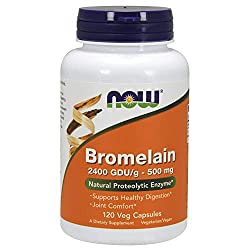
Prenatal Vitamins Don't Cut it in the Third Trimester
HealFast: Critical Supplements to Promote Optimized Recovery & Better Healing During Childbirth!
Fun Fact: Did you know that a woman's entire blood volume increases by about 50% during pregnancy and that her heart can pump the entire blood volume through the uterine arteries every 7 minutes!?
The metabolic demands of pregnancy continue to increase throughout the entire pregnancy and extend into the postpartum period as a result of breastfeeding and the mother's healing process. It's no wonder that nutrition, eating habits, and supplements are of paramount importance.
Women are encouraged to eat sensibly and may increase their caloric intake by about 200-300 kcal per day. These calories should come from healthy sources like vegetables, fruits, grains, and lean protein.

200-300 calories per day is not really all that much!
After all, a portion of mashed potatoes, a bowl of cereal, or a candy bar packs about the same amount of calories; but we know that candy bars and the like, have no useful nutrients and place a high sugar load on your system leading to rebound hunger and fatigue. Most of this increased caloric intake is needed to feed the baby and maintain the energy requirements of pregnancy. Nutritional Insufficiency and Potential Deficiency In the first trimester, nausea and vomiting can cause the loss of both calories and micronutrients at an accelerated rate which makes catching up in subsequent trimesters difficult. This is why essential nutrients, vitamins, minerals, and amino acids get used up rather quickly in pregnancy.
Added to those demands, the immune system gets weaker during pregnancy as well and often times, the following conditions become present during the third trimester:
- Constipation
- Anemia
- Heartburn
- Insomnia
- Frequent urination
- Fatigue
- Swelling
- Bleeding gums
- Muscle/calf cramping
Eating a healthy and balanced diet is sometimes difficult due to these third trimester problems because certain foods cause heartburn or constipation.
Often times, Anemia can result due to the increased use of red blood cells and volume of blood which dilutes the amount of hemoglobin circulating. Anemia can cause tiredness, rapid pulse, and shortness of breath. While Iron supplementation helps fight anemia, it often times adds to the constipation.
Using Prenatal Vitamins
Prenatal vitamins are usually prescribed throughout pregnancy with the standard prenatal vitamin formulation containing:

- Iron - 30 mg
- Zinc - 15 mg
- Calcium - 250 mg
- Vitamin B-6 - 2 mg
- Folate - 0.4 mg
- Vitamin C - 50 mg
- Vitamin D - 5 mcg
The types and quantities of micronutrients in prenatal vitamins are rather low given the increased metabolic demands. Numerous studies have evaluated routine supplementation and the conclusions are mixed.
A systematic review of prenatal multi-micronutrient supplementation in pregnancy demonstrated a significant reduction in the risk of low birth weight for mothers taking multiple micronutrients compared with those receiving placebo. [29]
However, there remains much controversy over which and how much of a given micronutrient is most beneficial. The difficulty lies in predicting or identifying those women who become pregnant and are already deficient in critical nutrients.
Foods to Avoid
Certain foods are to be avoided throughout pregnancy and include undercooked meat, raw eggs, liver or liver pate, unpasteurized cheeses, blue-veined, and mold ripened cheeses.
Oily fish such as swordfish, shark, and marlin should be limited due to mercury content in these meatier, longer living fish.
Critical Nutrition needed to optimize Mom's recovery
The process of childbirth, natural or by cesarean, increases metabolic demands and stress on the body significantly. Postpartum healing of an incision from an episiotomy, laceration, or due to an abdominal incision require essential nutrients, anti-oxidants, and healing nutrients to optimize recovery. The risk of wound separation and infections will decrease if adequate supplementation is begun before the labor process. Breast feeding further increases the metabolic demand for energy and micronutrients. Lack of sleep due to nighttime feedings make having good nutrition and taking supplements vital for a fast and complete recovery.

Let's look at some micronutrient requirements of pregnancy that should be maintained through the completion of lactation.
Vitamin A
Vitamin A, a fat-soluble vitamin, is essential for vision, collagen strength, and wound healing. Plant-based Vitamin A is found in green leafy vegetables and yellow-orange vegetables of the carotenoid group. The non-pregnancy RDA is 700 mcg, and the pregnancy RDA is 770 mcg. The lactation RDA is 1300 mcg. Since most pregnant women do not have well-balanced diets, women who are pregnant or lactating may need routine supplementation. High doses exceeding 15,000 IU/d, are associated with an increased risk of congenital disabilities and should not be used in pregnancy. Alpha-carotene, a vitamin A precursor, is not teratogenic.[9]
Vitamin C
Vitamin C is known as ascorbic acid, with numerous functions including reducing free radicals and assisting in collagen formation and the absorption of iron. [6] The RDA is 75 mg. The pregnancy RDA is 85 mg and increases to 120 mg with lactation. Although routine supplementation is not recommended for those with well-balanced diets, because Vitamin C is water soluble, any excess is efficiently secreted through the kidneys which are functioning at much higher capacity than when non-pregnant. Vitamin C cuts healing time in half! Talk to your doctor, but it appears that supplementation has a considerable upside.
Zinc
Zinc is essential early in pregnancy for growth and development of the baby. The RDA for a pregnant woman is 11 mg and increases to 12 mg during breastfeeding. Both iron and copper compete with zinc at absorption sites. Zinc supplementation is recommended when elemental iron supplementation exceeds 60 mg/d. Likewise, whenever zinc supplements are used, copper should also be supplemented. Different prenatal vitamin formulations contain varying amounts of copper and zinc.[27]
In preparation for delivery, zinc reduces healing time by 43%, reduces scar formation, and has anti-bacterial properties.
Magnesium
Eighty percent of all people are deficient in magnesium, and its supplementation should be lifelong. In pregnancy, magnesium will help with constipation and muscle cramps.
Quercetin
Quercetin has anti-inflammatory effects by reducing histamine release which is common during the administration of epidural anesthesia. Pain control is improved with quercetin supplementation.
Bromelain has anti-clotting properties which are a great supplement to have during pregnancy because clotting propensity is increased during pregnancy. It also reduces bruising and helps hematomas to resolve more quickly.
Arginine
Arginine is an essential amino acid that is depleted during times of stress (pregnancy, labor, cesarean). It keeps nitric oxide levels in the normal range for collagen production and wound healing.
Glutamine
Glutamine accounts for 60% of the intracellular pool of amino acids and is the energy source for rapidly dividing cells. Depletion is rapid with injury, labor, or surgery. The whole process of pregnancy is the result of rapidly dividing cells. As an anti-oxidant, it improves healing and decreases wound infections.
Conclusion
It is time to discuss with your doctor the role of a supplement program like Heal Fast. As a retired Obstetrician/Gynecologist, the numerous benefits of HealFast in the last two weeks of pregnancy and for the immediate postpartum period warrant serious consideration and pose a minimal risk due to the short duration and timing of use.

General Disclaimer: All information here is for educational purposes only and is not meant to cure, heal, diagnose nor treat. This information must not be used as a replacement for medical advice, nor can the writer take any responsibility for anyone using the information instead of consulting a healthcare professional. All serious disease needs a physician.
















